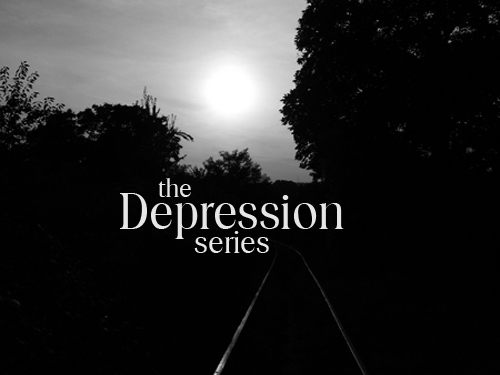Part 4 – The Depression Series

How do you know when someone is ready to overcome depression? They look for a way out – help, support, information, etc. No one can be coerced into getting better. Making choices that can improve your life, changing your thoughts and consequently your feelings, finding motivation and hope, they are all deeply personal processes, and their timing varies from person to person.
Keeping that in mind, here is what I would say to you if we were friends and you came to me for advice regarding depression – yours or someone else’s.
To my depressed friend
Are you depressed? Start from there. Do not try to lie yourself into lack of depression, because it doesn’t work. Do not tell yourself anything that doesn’t sound true to you – deep inside you won’t believe it, and there’s a good probability you’ll make your emotional burden even heavier. Anything different from the truth will support your depression, setting the stage for complications, strengthening depressive thoughts. In this context, truth means your truth at this particular time.
Allow. Allow yourself to be. If necessary, say it out loud to yourself: “I allow myself to be.” Feel each word. Allow your depression to exist. If you are blaming yourself or others for your depression, stop those thoughts. If you are punishing yourself for your depression, stop doing that also. Accept the situation as it is. Allow life to be exactly as it is. Allow others to be who they are. Your resistance to what is won’t change it.
For a while try to eliminate as many connotations as you can. Once you recognize one, stop it at will. Don’t think about it, do not replace it right now. Just stop it. Basically, you’re cleaning up your mind, dusting ideas and concepts.
“Fighting” depression is futile. It actually means you are fighting yourself, and that’s exactly what you have to stop doing.
Don’t (easily) accept depression as an illness. Thinking you are mentally ill reinforces your depression, enhances the bad feelings you have about the condition, yourself and your life, and it shifts your attitude to that of a victim. It makes you powerless, putting your whole well-being into the hands of external factors.
If you are not sure about a particular method of dealing with depression, try it out first and see how you feel afterwards. Start with the least invasive methods, and focus on those that make you feel better about yourself and give you a sense of empowerment.
If you believe that you need some sort of medical help – ranging from talking to a therapist to prescription pills – you’re better off going that way. Don’t set your endeavors up for failure by doing things you don’t believe in. What works for one person may not work for another, and if you do not believe that you can handle depression by yourself, you really need external help.
See a general practitioner, get blood tests, have a good overview of your general health. Some health conditions make you prone to depression. Make sure you have those under control.
Depression (or related symptoms) may also be the consequence of unhealthy daily habits. Vicious circle? Very much.
However, that continuous feeling of misery indicates you are not living the life of who you really are, you’re not expressing yourself.
Do whatever you feel, even if that means doing nothing.
Consider stopping facade games you put up in fear of what others might think of you, say or do. Maybe you have to let go of that job that makes you miserable, or that relationship in which you never get to be yourself. Or maybe you should not attend the next family reunion, if you do not feel joy at the thought of seeing everyone. Be true to yourself and your own feelings, because there’s a good chance that the opposite made you depressed.
To my friend who cares about someone in depression
There aren’t many things you can do, but they are very important and can truly help your loved one.
First of all, do not force them to do anything. Don’t force conversation, points of view, activities, etc.
Love them. Be there for them. Reassure them that you are available when they need you.
Respect their freedom to decide if and how much help they will receive from you. Even if you’re worried, anxious or hurt. It is their life, their challenge, their decision.
The series continues in a few days with a piece on the most delicate aspect of depression – suicide.